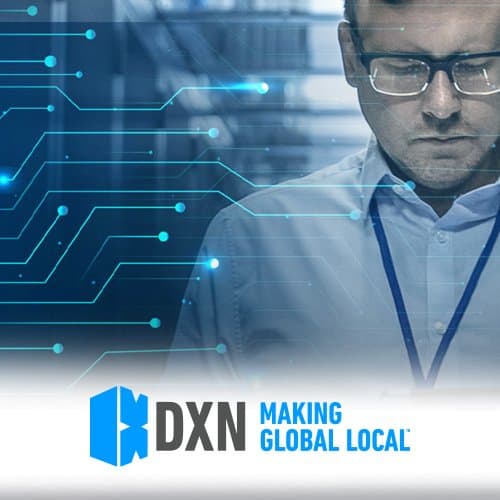The data centre you choose needs to support you, your business, and your customers.
When choosing a data centre you need to look for one that can support your needs today, and as you grow. There are some key things to look out for when selecting a data centre provider:
A flexible approach – It’s important that the data centre provider is able to support your specific requirements now, and as you grow. They should be able to offer custom solutions that can adapt in line with your changing business needs.
A trusted network – The network underneath the host environment is vital. By choosing a data centre with a high-performing network, you’ll have peace of mind knowing that it’s fast and secure; providing great content delivery and minimal downtime.
Ease of use – You want it to be quick and easy to get up and running with the right hosting services; not having to deal with lengthy contracts or complex configurations will make life easier for everyone involved in setting up your new site or platform.

Power Redundancy
The most important consideration is that the facility offers redundant power feeds and generators. Ideally, the data centre will have two feeds coming from two separate electricity substations and two backup generators to provide power in case of a localised blackout.
These feeds will be separate UPS (uninterruptible power supply) systems that ensure there are no breaks in the flow of power to your equipment if you happen to be on the same feed as another user who happens to be doing an unplanned reboot. The UPS systems will also protect against any spikes or dips in voltage from the mains supply, which could cause damage to your equipment.
Finally, make sure everything is remotely managed and monitored around-the-clock, so that someone can resolve any issues long before it becomes a problem for you or your clients.
Connectivity
A data centre can’t be truly a data centre if it doesn’t have a connection to the greater Internet. You want a facility that provides reliable, fast and secure connection to the outside world. Look for an organization that offers up-to-date servers that are constantly monitored and maintained by IT teams, with hardware replacements prepared in advance. If one provider’s connection is down or not performing well, you want another provider to seamlessly take over without any interruption in service.
Geographic Location
Choosing a data centre location is a balancing act. There are many factors to consider, and you’ll have to balance them according to your own requirements—but no matter what, geographic location is an important part of the equation. You’ll want to take into account the following:
- The physical locations of your customers. Are they all in one place, or scattered across several? Are they close by or far away? If there are different groups with different locations, where do you need to be able to provide optimal performance for each group?
- Proximity to your existing infrastructure. If you already have equipment in a colocation facility or on-premise installation (or both), how will this affect your choice of data centre provider? How much distance would be acceptable? Would it make sense for you to connect directly from one site to another without involving a network operator?
- Proximity between multiple facilities. If you maintain disaster recovery sites, what’s the most acceptable distance between them? Do you need multiple sites that can back each other up if necessary—and if so, how far apart should these sites be from each other and from the primary site(s)?
Flexibility and Scalability
Flexibility and scalability are crucial. A data centre should be able to grow with you as your computing requirements evolve. Ensure that the data centre has a scalable architecture (i.e., one that can easily accommodate additional resources when they’re needed).
You’ll also want to pick a provider that will allow you to quickly and easily scale up capacity when required. No two businesses are alike, so make sure your data centre is flexible enough to adapt to ever-changing needs—and look for a service level agreement (SLA) that guarantees it.
The DXN Data Centre Network
The DXN Data Centre network currently consists of four interconnected facilities in Australia and are highly connected to other providers. DXN offers a range of co-location and Cloud Space Capacity for Production or DR solutions. Our cloud offering includes Public, Private and Hybrid Cloud options with build easy Hybrid Cloud environments allowing easy burst out from existing deployments with proven redundant and nonblocking cloud architecture. DXN Co-location facilities offer high speed and flexible networking options.




